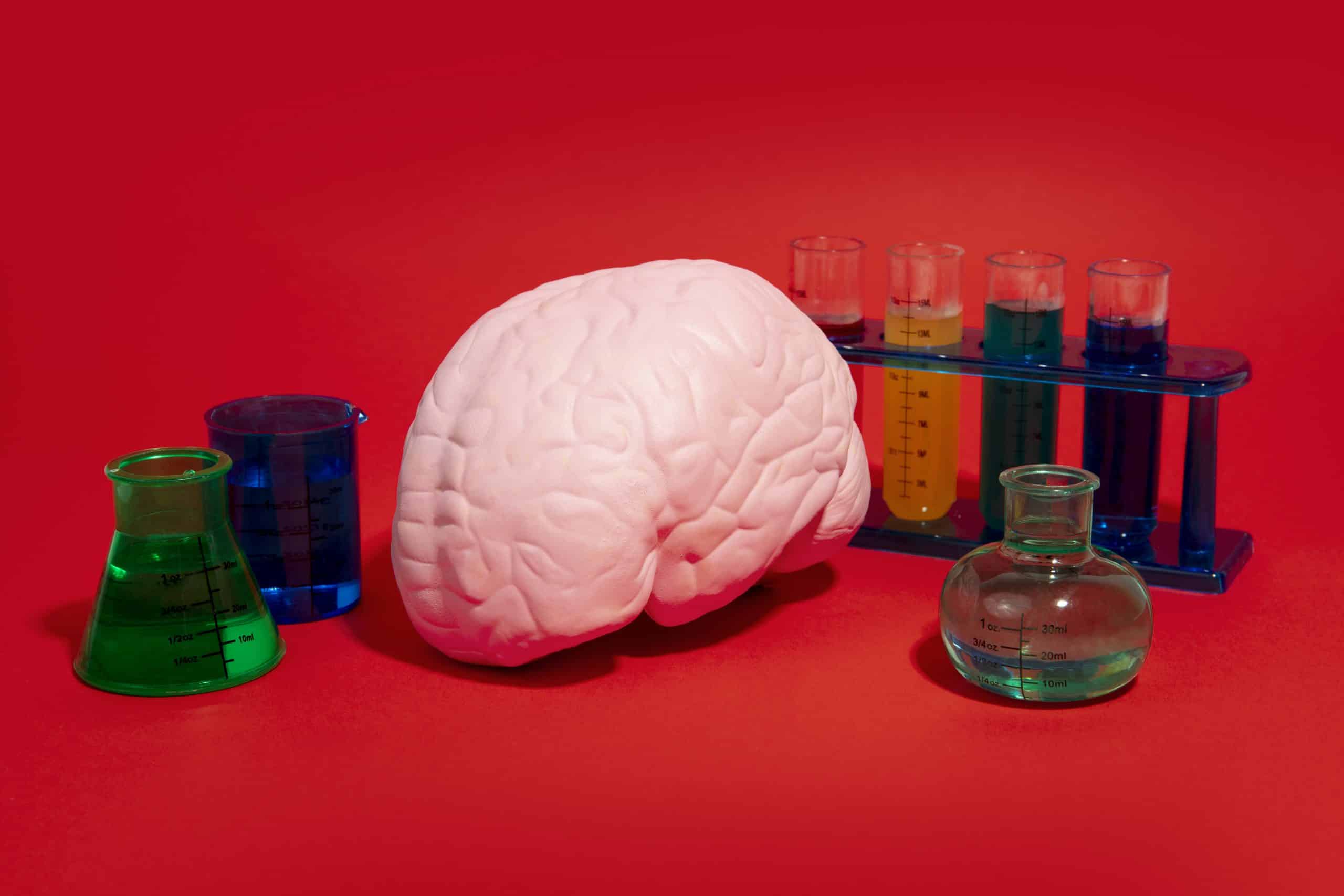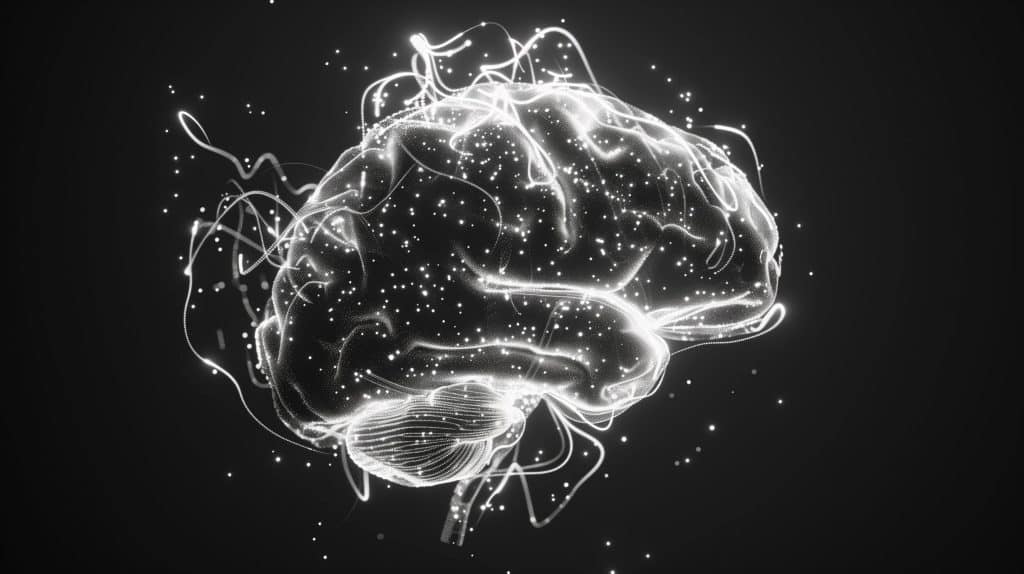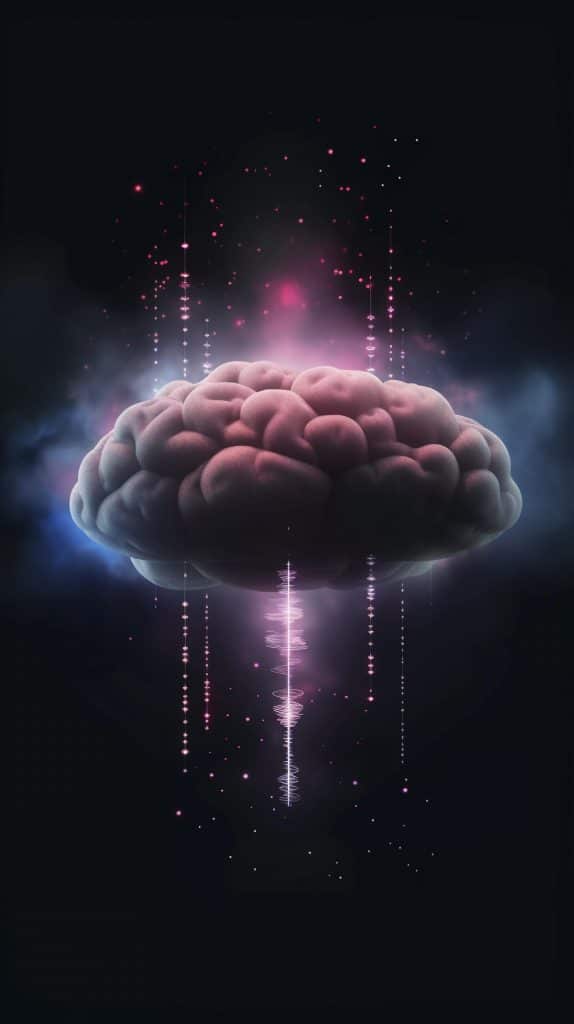No products in the cart.

DMT Effects on Brain
Contents
DMT is a compound found in various plants and animals that is used as a mind-altering drug. In large doses, dmt effect on brain can get you high and distort your senses so that you see or feel things that are not really there.
What Is DMT’s Impact?
DMT binds to serotonin receptors in the brain. This action triggers significant alterations in sensory perception and consciousness. Its effects are immediate, often within seconds of ingestion or inhalation, peaking rapidly.
Serotonin is a main neurotransmitter involved in mood and perception. When DMT engages these receptors, users report experiencing vivid hallucinations, altered time perception, and emotional shifts. These changes reflect DMT’s direct influence on the brain’s chemistry and its ability to modulate consciousness.
How quick is the effect of DMT on the brain?
Users have noted that immediately after getting DMT into the body, you see a completely different reality. The effects of DMT on the brain spread instantly, which is due to its ability to effectively cross the blood-brain barrier. This is what makes DMT different from other psychedelics.
DMT completely changes one’s sense of reality. Many users report seeing events that predict their fate. Others meet otherworldly beings or have sudden realisations about their lives.
These experiences are not subjective, as they are reflected in the latest brain imaging studies and show actual changes in brain structure while taking DMT.
Top reasons for a DMT pen
A DMT pen offers a discrete and convenient way to experience this psychedelic substance.
Top reasons to get one:
- Ease of Use (simple inhalation without the need for complex preparation);
- Portability (compact design allows for easy transport);
- Controlled dosage (easier dose management compared to traditional methods);
- Discretion (minimal odour and appearance make it less conspicuous).
These benefits make a DMT pen an attractive option for those exploring psychedelic experiences.
What Happens to the Brain When You Take DMT?
Recent researches have learnt how DMT affects the brain and how it affects neural activity. From recent results and observations, it is clear that DMT can temporarily dissolve the boundaries between different areas of the brain, allowing for more integrated and holistic information processing.
Visual cortex activation
DMT has a significant effect on the visual cortex. Users report that they see colours more intense and vivid, and sometimes see different entities and unusual things.
Activating the visual cortex doesn’t just increase normal visual processing, it changes brain activity. DMT allows users to look inside their minds and see alternate realities and parallel universes.
Ego dissolution
A particularly intriguing aspect of DMT’s impact on consciousness involves its effect on the default mode network. The DMN is associated with self-referential thoughts and ego identity. Under DMT, activity in this network significantly decreases, leading many researchers to link this reduction with experiences of ego dissolution.
Ego dissolution can be one of the most transformative aspects of a DMT trip, where people report losing their sense of self and merging with something larger than themselves. This experience often leads to insights about life, existence, and personal identity.
Sensory Alterations
The effects of DMT on the brain significantly change colour perception. Users often notice a sharp intensification of colours, making them appear brighter and more vivid than in the normal state. For many, this results in beautiful visual effects that turn ordinary surroundings into a kaleidoscope.
Auditory changes
Alongside visual alterations, DMT also impacts auditory perception. Under its influence, sounds may seem richer and more complex. Users describe music as more emotional and environmental noises as unexpectedly fascinating.
This altered auditory experience can deepen the overall trip, creating a synesthetic blend where sounds contribute to visual hallucinations. The fusion of senses underlines DMT’s capacity to modify sensory inputs, offering insights into the brain’s interconnected sensory processing networks.
Long-Term DMT Effects on Brain
Research into the dmt effect on brain function suggests potential neuroplastic benefits. These findings point to DMT’s ability to promote the growth of neural connections, possibly improving brain health and cognitive functions over time.
DMT may enhance learning and memory by fostering a more flexible and resilient brain network. This could lead to long-term improvements in problem-solving skills and creativity. However, these benefits are speculative, with more research needed to confirm them.
Neurotoxicity
Modern research has proven that DMT has no neurotoxic effects on the brain, its use is perfectly safe. The lack of neurotoxicity emphasises the potential of DMT as a low-risk substance to explore altered states of consciousness without damaging brain cells.
Mental health
Regular use of DMT has mixed effects on mental health. Some users report that DMT use leads to positive changes in mindset and well-being. Others find that the intensity of DMT-related experiences causes psychological anxiety. Factors such as frequency of use, dosage and mental health history play a significant role. Therefore, you should be cautious about taking DMT if you suspect mental instability or have a history of psychological illness.
Cognitive functions
The long-term effects of DMT on cognitive function require further investigation. Preliminary evidence suggests that regular use of DMT does not significantly impair cognitive function, but may instead improve it. As with any substance that affects brain chemistry, moderation and context are key factors in determining the overall impact on cognitive performance.
DMT’s Therapeutic Potential
Researchers are delving into DMT’s potential to treat mental health conditions such as depression and PTSD. Studies suggest that DMT could offer new pathways for therapy resistant to traditional treatments.
Clinical trials have begun to explore how DMT affects the brain, particularly in patients with treatment-resistant disorders. Early results indicate significant improvements in mood and outlook among participants, pointing to DMT’s potential as a groundbreaking therapeutic agent.
Brain reset
The theory that DMT can reset brain networks is gaining traction among scientists and therapists alike. This reset is thought to break cycles of negative thought patterns, offering a ‘clean slate’ for people struggling with persistent mental health issues.
Research shows that DMT promotes neuroplasticity, allowing the brain to form new connections and pathways. This effect on the brain can lead to lasting changes in behaviour and perspective, providing relief from conditions like anxiety and depression where other treatments have failed.
What are the possible side effects of DMT consumption?
DMT leads to intense experiences. Its consumption may not always produce positive and beneficial effects. If a user suffers from psychological illnesses, he or she may have negative experiences with DMT consumption, such as anxious hallucinations or panic attacks.
If DMT is consumed in uncomfortable and disturbing conditions, bad tripping may occur. In such cases, users feel intense fear and confusion and see horrible hallucinations. Therefore, it is important to use DMT carefully and in comfortable conditions.
Frequent use of DMT increases the risk of developing HPPD. This condition involves persistent visual disturbances such as seeing halos or plumes. HPPD can significantly affect daily functioning and quality of life, so it is important to moderate everything.
Mindset can have a strong influence on the effects of DMT. For example, a positive mindset can reduce the risks of negative consequences, while a negative mindset can increase them. If you use DMT in an unstable or stressful environment, it increases the risk of psychological distress or bad trips.
Conclusion
Expert opinion
Christopher M. Hicks
Christopher has a PhD in mycology. He has spent the last 10 years studying the effects of psilocybin on serotonin receptors, so he is well informed about its influence on changing consciousness and human mental health.
To better understand the effects of DMT on the brain, experience it for yourself with premium DMT vape products from Funguyz. As it is said, it’s better to try it once than to hear it a hundred times. The therapeutic use of DMT is safe and proven by the latest research, so you can rest assured of the quality of this product.
DMT Effects on Brain FAQs
-
Does DMT Affect Brain Function Permanently?
Some users have noticed lasting changes in perception after using DMT, but there is no direct proof that DMT causes permanent changes in the brain.
-
Can DMT be Used to Treat Mental Health Conditions?
DMT is now seen as a potential treatment for depression and other disorders. In any case, if you have psychological disorders, consult your doctor before using DMT.
-
Is DMT Addictive?
Definitely not. DMT is not addictive. However, some users may develop a psychological craving for the interesting and exciting experience that DMT provides.

